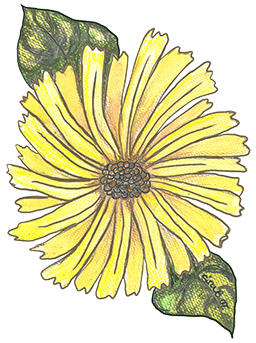August 2023 Blog – The Power of Socialization and Meaningful Personal Interactions on Brain Health
Tuesday, August 1, 2023
As a society we understand the value of community involvement and support of each other.
It truly takes being part of the right village, the right community to feel a sense of belonging, a sense of value and a sense of integration.
One of the six pillars of brain health according to the Cleveland Brain Institute is socialization and the ability to build and maintain meaningful relationships.
We experienced firsthand the devastation of isolation as we all tried to navigate Covid.
We now know that more seniors died of isolation than they did of Covid infection.
To combat isolation and to feel a sense of community we have to be proactive daily in engaging with others: our co-workers, our friends and family, our neighbors, our caretakers, or persons providing services to us.
Being intentional in building relational bridges with others we can grow our social circle.
For example:
- Shopping at the same family owned business with a warm smile will make you a favorite and welcomed customer.
- Getting to know the ladies and gentlemen at your local library will be rewarded by a chat and a smile and before long they will greet you by name!
- When walking your dog or getting the mail, you can start a conversation with a passerby. Maybe it just starts with a nod, then a smile followed by a greeting. Before you know it a friendship may be stirring.
- Social networks such as senior centers, places of faith and worship, and community activity opportunities may provide settings for save interaction and social growth.
- Volunteering or extending a helping hand to your neighbor or friend can also increase your sense of value and belonging.
Being intentional about creating time and space for activities where we can find like minded souls will help us grow relationships and social well-being.
This does not change for our person living with dementia!
- They need to feel valued even if they can not express their interests or motivation
- They need to feel socially engaged even if they do not remember who others are (they will remember how we make them feel!)
- They need to be included in social activity even if they can not seek it out themselves.
Recommendations specifically for our persons living with dementia through the Memory Bouquet™ map:

Lily/Beginning neuro-cognitive decline:
- Keep up with your normal social routines.
- Be as transparent as possible about potential memory lapses to build sensitivity with your social circle.
- Ask for reminders of names, places, important dates etc. so that you can keep up with the activities you love.
- Set your own reminders and use a calendar for everything you need to remember.
- The good news are that you can build new long term memories with repetition and practice and you can bring value to any social circle you choose to join!

Daisy/Mild Neuro-cognitive decline
- Ask for help since you may struggle with moderate to severe memory loss and may have difficulties with some other cognitive abilities such as judgement or reasoning.
- It is okay to rely on others for reminders, for updating calendars and to drive you to social activities
- People still need you in their lives – you have a lot of wisdom to share
- Others can learn to be patient with your repetitive questions – it will be helpful to write down questions and answers that occurs frequently so you can feel more in charge of a social situation.
- For example: If you are attending a family event it may be good to write down names of persons attending, who is married to whom and which children belongs to whom and who are the new partners involved. This will allow you to enjoy the event more!

Violet/Moderate neuro-cognitive decline
- You still want to feel loved and involved although you do not have the memory or decision making skills to create your own opportunities.
- If your people approach you in the right way, and present opportunities that interest you, you will gladly participate.
- You will need patience, repetition of information, demonstration of an activity and assistance to engage appropriately.
- For example when being included in a basic card game with the family, you may need to pair with a buddy that can assist with rules, and prevent you from getting frustrated so that everyone can experience joy and connection.

Rose/Severe neuro-cognitive decline
- Your world have become quite small as your visual perception has changed in addition to severe memory loss and difficulties with decision making and navigating a social environment.
- You may struggle recognizing anyone in your close circle, and to make things more complicated you may struggle with language and expressing your love and connection.
- If your people learn how to approach you face-to-face with a friendly and compassionate tone of voice, followed by a gentle touch they can establish connection.
- You can engage in social activities if it is kept short and simple. Music is a great way to stimulate the amygdala. Dancing may bring great joy and connection if it is done with the right amount of physical support. Using simple musical instruments with hand-over-hand guidance can be an opportunity to connect and have fun.
- The good news are that your persons in your circle an still connect with you if they have patience and are intentional in their approach and expectations.

Bouquet/Advanced cognitive decline
- You have many challenges with processing information.
- You can hear voices and music and feel and comprehend how touch is delivered to you. But it is almost impossible to respond to your environment.
- You are reliant on your loved ones and care partners to help you process everything that happens to you through their kind and patient explanation of their care.
- Any ordinary activity such as feeding you, dressing you, cleaning you or providing medical interventions: all of these tasks provide opportunity for your people to engage with you in a way that will make you feel safe and involved.
- Sensory stimulating activities are a great way to connect with you such as massaging your skin with a scented lotion, or pushing you in a chair outside in the breeze and sun, or playing music in your room while your person sing to you or even just listening to your person reading to you will soothe you and provide social engagement.
We need each other! Each opportunity to connect with another person is an opportunity to improve your and their brain health through stimulation of neurotransmitters and hormones necessary for our well-being.
So schedule coffee or wine with a friend and improve your brain health!